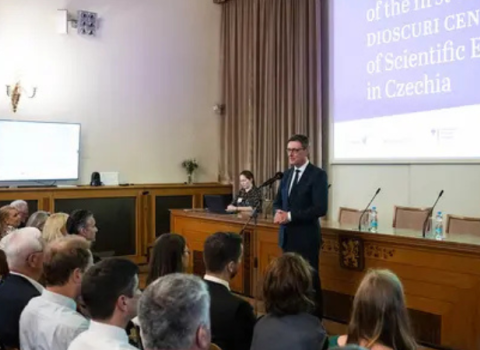Budapest doubles down on domestic funding schemes to protect researchers and students from being marginalised

Hungarian Prime Minister Viktor Orbán at a plenary session. Photo credits: Philippe Buissin / European Union
Hungary is maintaining its commitment to domestic research and student mobility schemes created to cover for blocked EU funding. This follows a European Commission decision in December that proposed legislative reforms do not resolve the issues that caused funding to be suspended in 2022.
The Commission’s decision leaves the door open for Hungary to suggest new legal remedies at any time. But Eszter Lakos, a former science counsellor in Hungary’s Brussels representation who now sits in the European Parliament, thinks the government’s attention is elsewhere.
“The attitude of the Hungarian government makes it quite clear that there is not much will to implement the measures needed to have access to the EU funds, despite all the rhetoric,” the MEP said. “It appears more focused on maintaining control over those universities and research institutions.”
In 2022, the Commission barred more than 30 Hungarian institutions, including 21 universities, from accessing Horizon Europe and Erasmus+ funds, over concerns that government-imposed changes to their management structures undermined academic freedom and transparency.
In September 2024, the Hungarian government put forward draft legislation intended to end the deadlock, but the Commission has ruled that this does not adequately address the issues. So, the funding remains blocked.
The Hungarian government is naturally unhappy with this development, which continues “the discrimination that Hungarian students and researchers do not deserve,” according to a statement from the communications office of prime minister Viktor Orbán. It maintains that the new law “duly settles all issues that the European Commission had expressed concern about.”
Meanwhile, the Ministry of Culture and Innovation rejects the Commission’s right to intervene in the country’s university sector.
“With this demand, the European Commission on the one hand ignores the fact that higher education is not an EU but a national competence, and on the other, it interferes with the autonomy of our universities,” it said in a statement to Science|Business.
Filling the gap
Hungarian researchers unable to access EU funds can still participate in Horizon Europe projects if they find their own resources. To this end, Hungary has created a €12.8 million fund to cover the participation of scientists from the barred institutions.
In addition, the government has launched domestic alternatives to both Horizon Europe and Erasmus+, known respectively as HU-rizon and the Pannónia Scholarship Programme.
According to the Ministry of Culture and Innovation, the HU-rizon budget was increased last year from €20 million to about €30 million following strong demand in the 2024 call for proposals. This is approximately three times more money than the blocked institutions might expect to receive from the Horizon 2020 and Horizon Europe programmes, it said.
The HU-rizon programme will run again in 2025, but with the original €20 million budget.
Meanwhile, the Pannónia Scholarship Programme aims to offer international mobility, inside and outside Europe, to the 200,000 or so Hungarian students affected by the Erasmus+ ban. Again, the government says that the scheme improves on the EU scheme, offering larger scholarships and improving credit recognition.
For Lakos, a national scheme such as HU-rizon might make up for some of the loss to Hungarian researchers, but it is unlikely to match the scale and diversity of Horizon Europe.
“Horizon Europe isn’t just about money,” she told Science|Business. “The broader EU research environment offers a level of prestige, infrastructure and collaboration that is difficult to replicate nationally.”
Istvan Kenesei, a member of the Hungarian Academy of Sciences, goes further, deeming HU-rizon “a sham replacement” lacking continuity and consistency. “There is no accredited evaluation procedure beforehand nor, as far as I know, at its conclusion,” he said.
More generally, the conflict is having a chilling effect on international collaboration.
“Even the universities that do not fall under the EU ban are disadvantaged, because prospective EU partners shy away from Hungarian universities in toto on account of our bad reputation due to the Erasmus ban,” Kenesei said.





 A unique international forum for public research organisations and companies to connect their external engagement with strategic interests around their R&D system.
A unique international forum for public research organisations and companies to connect their external engagement with strategic interests around their R&D system.